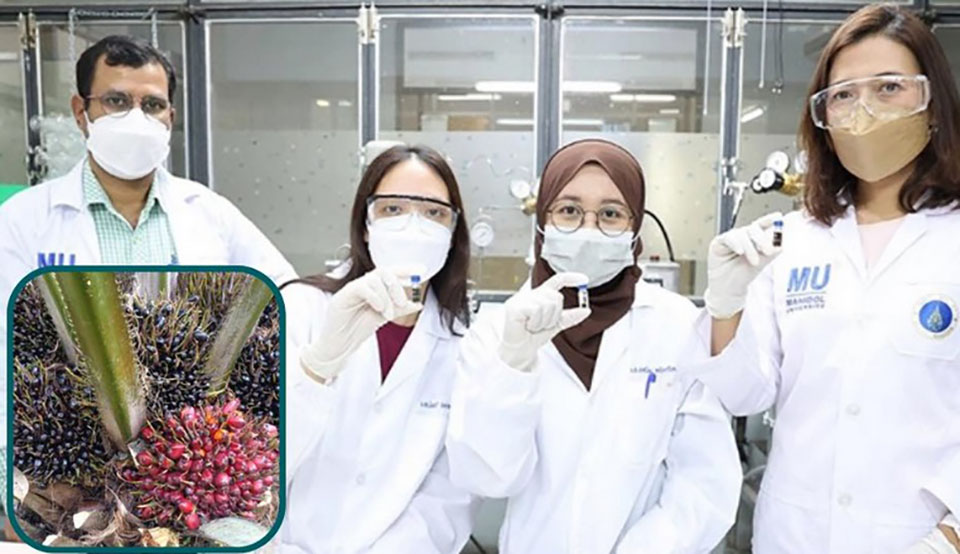
Thai researchers innovate synthesis of “fluorescent carbon dots” derived from empty palm fruit bunches for the targeted delivery of anticancer medicine
Another advancement in treating colon cancer has been made by Thai researchers from Mahidol University’s Faculty of Engineering and the National Science and Technology Development Agency’s National Nanotechnology Center.
The innovation of fluorescent carbon particles from palm bunch biopolymers was developed under the concept of “nanotechnology” for targeted cancer treatment by using “nanoparticles” as materials for delivery of anticancer drugs to targeted cells. The drug delivery will inhibit the growth of cancer cells, including limiting the area so that the drug can work precisely on a specific area. This method helps reduce the effects on the surrounding tissue and side effects from the treatment. The study has also shown that carbon dots have the attribute of biocompatible properties, having a high ability to dissolve in water while producing low toxicity. Moreover, the average size is less than 10 nanometers, which is a suitable size that is able to move into cells well. Then the luminescent carbon particles will make it easier for medical staff to provide follow-up treatment.
Soon, the research team will progress to further animal and human experiments. When successful, the development will not only help increase the survival rate of colon cancer patients but the production of agricultural material available in the country will also reduce imports of expensive pharmaceutical products, as well as promoting Thailand as a medical hub. (PRD)

 |
 |
 |




